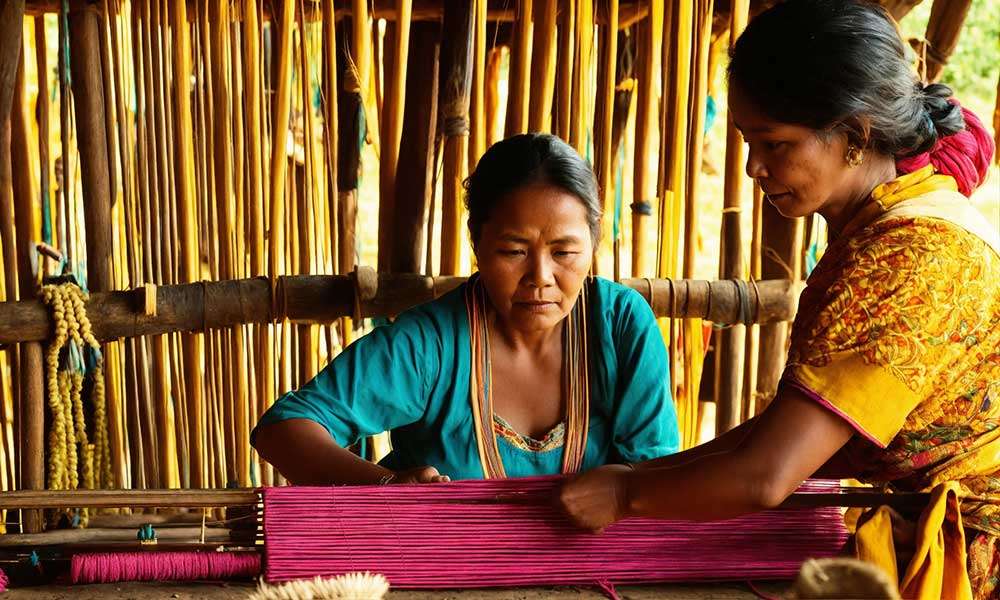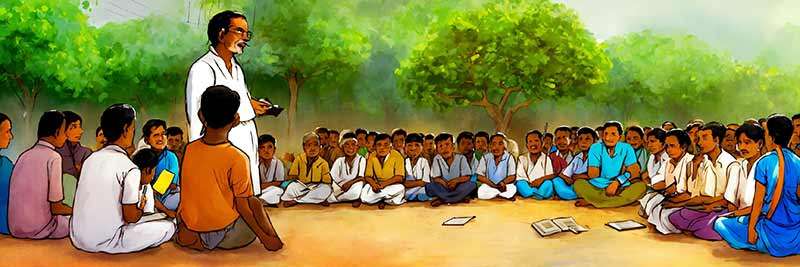Understanding the Importance of Social Work in Bangladesh
Social work plays a crucial role in shaping Bangladesh’s future by addressing social, economic, and environmental challenges. With a large population, significant poverty levels, and ongoing issues like climate change and gender inequality, social work is essential for sustainable development and improving the lives of marginalized communities. Social workers act as agents of change, advocating for human rights, economic empowerment, and social justice, making their role indispensable in the country’s progress.
1. Addressing Poverty and Inequality
A significant portion of Bangladesh’s population still lives below the poverty line, making poverty alleviation a priority. Social workers help provide necessities such as food, shelter, and education. Additionally, programs supporting job creation, skill development, and microfinance empower individuals to become self-reliant. By facilitating access to financial resources and vocational training, social work contributes to economic growth and social stability. NGOs and social enterprises are vital in funding and implementing these programs, ensuring long-term sustainability.
Economic disparity is a significant issue in both rural and urban areas. Slums in major cities like Dhaka and Chattogram struggle with overcrowding, lack of sanitation, and limited employment opportunities. Social workers collaborate with government agencies and private organizations to introduce income-generating programs, training workshops, and affordable housing initiatives to uplift underprivileged communities.
2. Empowering Women and Children
Gender inequality remains a significant challenge in Bangladesh, affecting women’s access to education, employment, and decision-making roles. Social work initiatives focus on empowering women through educational programs, vocational training, and financial independence. Women’s empowerment centres provide resources, counselling, and microfinance opportunities to help them achieve economic stability. Furthermore, legal aid organizations support victims of domestic violence, child marriage, and gender-based discrimination.
Organizations also support orphans and underprivileged children by ensuring access to quality education, healthcare, and emotional support. Many social initiatives focus on reducing child labour and preventing early marriages, both of which are prevalent in some rural communities. Shelters and foster care programs are essential in protecting vulnerable children and ensuring they receive the necessary care and education to build a better future.
3. Climate Change and Disaster Relief
As one of the most climate-vulnerable countries, Bangladesh frequently experiences floods, cyclones, and rising sea levels. Social workers play a vital role in disaster response, rehabilitation, and community preparedness. Efforts include distributing relief supplies, rebuilding homes, and providing psychological support to affected families. Additionally, environmental conservation initiatives, such as tree plantation projects and sustainable farming, help mitigate the long-term effects of climate change.
Climate change disproportionately affects coastal communities, displacing thousands of people every year. Social workers collaborate with environmental organizations to introduce adaptive farming techniques, build climate-resilient homes, and educate communities on disaster preparedness. By advocating for climate policies and sustainable development, social workers contribute to long-term environmental stability.
4. Healthcare and Sanitation Support
Many rural and urban poor in Bangladesh lack access to proper healthcare services. Social work initiatives promote free medical camps, awareness programs on hygiene, and sanitation improvements. These efforts reduce the spread of preventable diseases and enhance overall public health. Furthermore, mental health support is gaining recognition as a critical aspect of social welfare, with increasing efforts to provide counselling and awareness programs.
Social workers also advocate for improved maternal and child healthcare. Bangladesh has made significant progress in reducing infant mortality rates, but maternal health remains a concern in some remote areas. Community health workers are crucial in educating mothers about nutrition, prenatal care, and immunization programs. Mobile health clinics and telemedicine services also expand healthcare accessibility for rural populations.
 5. Youth and Community Development
5. Youth and Community Development
Engaging young people in social work fosters leadership, responsibility, and civic engagement. Programs focus on education, entrepreneurship, and community service to equip youth with essential skills for the future. Volunteers and social workers help bridge gaps in education, skill-building, and employment opportunities, empowering young individuals to contribute positively to society.
Social workers encourage youth participation in policymaking and community development initiatives. Programs like youth leadership training, startup incubators, and sports development projects help young people build confidence and skills. By involving youth in decision-making processes, social work helps cultivate a new generation of responsible leaders invested in Bangladesh’s progress.
6. Preventing Exploitation and Violence
Social workers actively fight against child labour, human trafficking, and domestic violence, which remain pressing issues in Bangladesh. Legal aid services, awareness programs, and rescue operations help protect vulnerable individuals. Advocacy efforts push for stronger policies and better law enforcement to prevent exploitation and support victims in rebuilding their lives.
Bangladesh remains a source, transit, and destination country for human trafficking. Social workers collaborate with law enforcement agencies and international organizations to rescue victims and provide rehabilitation services. Shelters, vocational training, and psychological counselling help survivors reintegrate into society and rebuild their lives.
7. Strengthening Rural and Urban Communities
Community-based social work fosters resilience and self-sufficiency among Bangladesh’s diverse population. Rural development programs focus on sustainable farming, clean water access, and infrastructure improvements. Meanwhile, urban initiatives support slum dwellers with better housing, education, and job opportunities. Social work is key in promoting balanced development across the country by addressing rural and urban challenges.
Sustainable agriculture and water conservation are critical for rural development. Social workers promote eco-friendly farming techniques, organic cultivation, and fair-trade initiatives to improve farmers’ livelihoods. Access to clean drinking water and sanitation facilities significantly improves health outcomes in rural areas.
In urban areas, affordable housing projects, vocational training, and social inclusion programs help disadvantaged communities improve their living standards. Social enterprises and cooperatives provide financial and technical support to marginalized populations, fostering economic growth and stability.
Conclusion – A Call to Action
Social work is essential in building a just and equitable Bangladesh. Whether through volunteering, donations, or advocacy, supporting social work can impact the nation’s progress. By working together, we can create a brighter future for all, ensuring that every individual has the opportunity to thrive in a more inclusive and sustainable society.


 5. Youth and Community Development
5. Youth and Community Development

 US Dollar
US Dollar Bangladeshi Taka
Bangladeshi Taka British Pund
British Pund